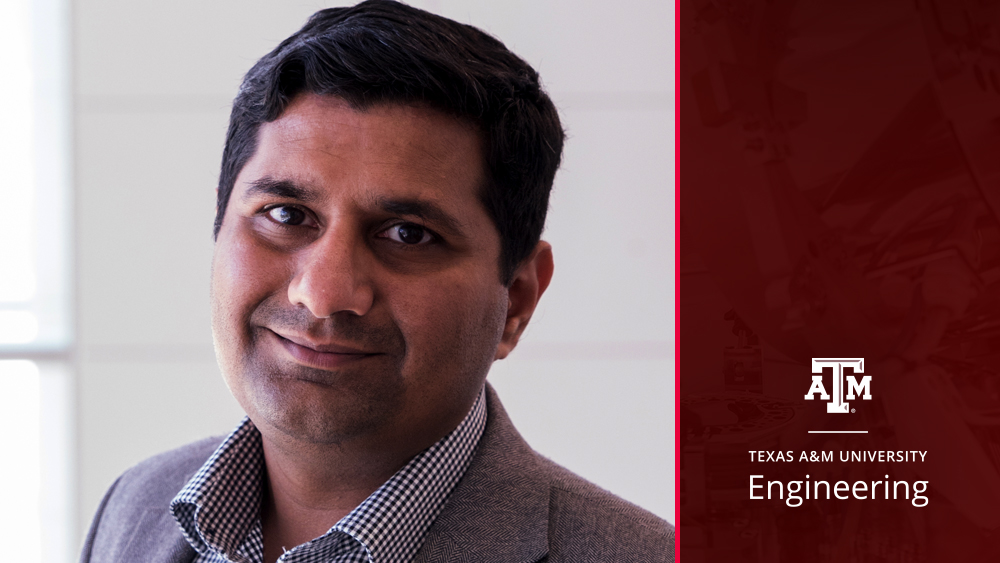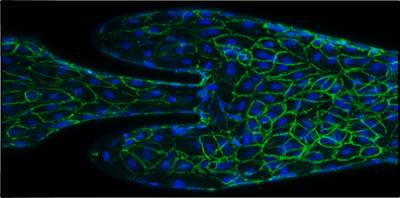
Dr. Abhishek Jain, assistant professor in the Department of Biomedical Engineering at Texas A&M University, is taking the study of veins out of the body and onto a chip to develop better ways to address and treat various diseases, including COVID-19.
Jain was recently recognized with the National Science Foundation’s Faculty Early Career Development Program (CAREER) Award to further his work to develop new disease models of veins to better understand how these unique structures help our cardiovascular systems function. Venous diseases are ranked amongst the top cardiovascular causes of death worldwide.
“The award gives us not only the critical funding to work on this, but also visibility that we are doing something that will potentially have a long-lasting impact within health care,” he said.
While moving blood from the heart throughout the body only requires the heart to beat, bringing the blood back to the heart is much more complicated and falls on the veins. Throughout veins are valves that open and close to pump the blood. When these valves fail, this can lead to different cardiovascular conditions, including venous thrombosis or blood clots.
“These valves have a very unique structure. Their architecture is such that as the blood moves through the valves, it’s actually disturbed. It’s not regular flow. So venous valves are very sensitive to any biochemical or even mechanical changes. If there are any changes, our venous blood vessels can be vulnerable to clots.”
Veins, however, are tricky to study outside of the body.

That’s why Jain’s team is engineering microfluidic devices — known in his lab as vein-on-chip — to mimic the architecture of veins in a miniaturized, transparent format. Researchers will be able to use human blood and cells in these systems, giving them a chance to better test new drug therapies or treatments for venous conditions.
“Veins are specialized blood vessels. It has been seen clinically but there are no model systems to effectively study those to really understand the underpinnings of vein physiology,” Jain said. “This gives us an enormous opportunity to understand vein biology and physiology in a totally new way.”
Jain can already see a future application of the chip technology — helping in the fight against the COVID-19 pandemic. Recent studies have shown that COVID-19 impacts the blood vessels, and a majority of the patients who are dying experience some sort of thrombosis.
“We have the opportunity to advance this model to prevent future death from pandemics that are actually vascular diseases,” Jain said. “You could very quickly use these tools to find drugs, to find treatments. You can save lives by using these devices.”
Jain’s research philosophy is also reflected in the CAREER award, which encourages translational work — taking the research out of the lab and into the clinic and classroom. Jain plans to create a new educational program titled “Biology without animals but with engineering” that will target high school students, involve undergraduates in research and as mentors, and provide contemporary communication strategies to graduate students.
The program will provide experiential learning experience to younger students, promoting excitement in STEM education and career opportunities.
“My long-term educational goal is to contribute in creating a critical and diverse workforce of biomedical engineers who can accelerate and economize health care through innovation in drug discovery pipeline,” Jain said.